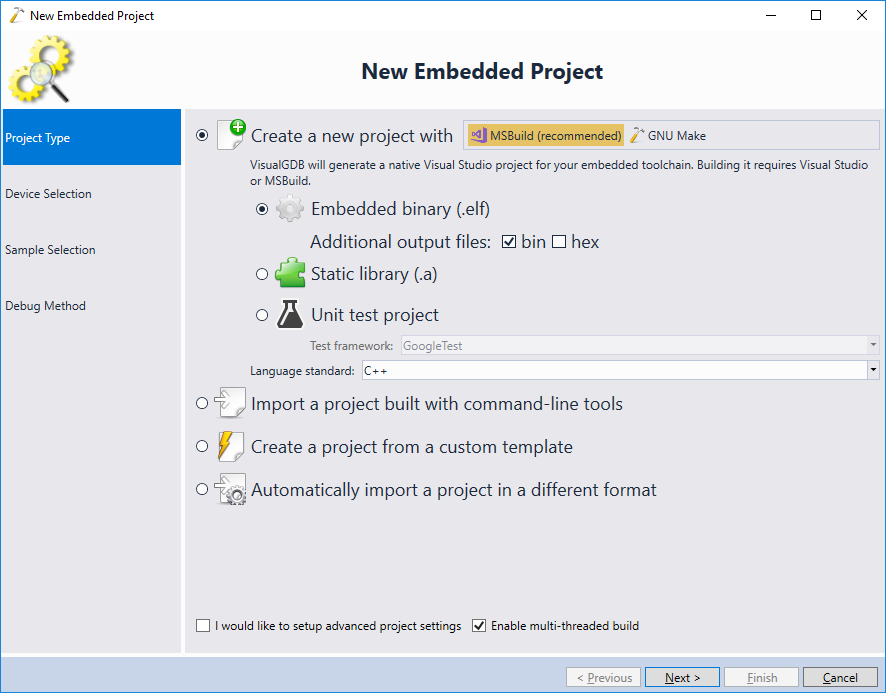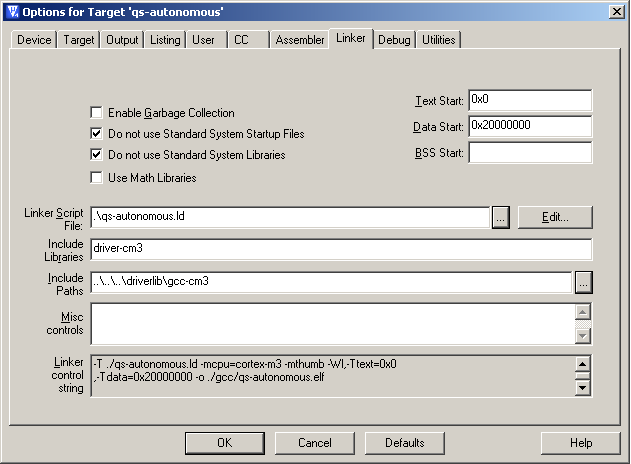

We compile the shared module into both our app and our bootloader, and can Uint8_t shared_data_get_boot_count ( void ) void shared_data_increment_boot_count ( void ) void shared_data_reset_boot_count ( void ) /* shared.c */ #include "shared.h"Įxtern uint32_t _shared_data_start #pragma pack (push) As longĪs the system remains powered, the RAM will keep its state even if the deviceįirst, we carve some RAM for shared data in our memory map: More often than not, we can use a region of RAM to get the same result. Microcontrollers which have RTC backup registers. On some architectures, non volatile registersĪre available which make this easy. This requires shared, persistent data between the application and the bootloader If the counter gets to 3, the bootloader does not start the app but instead.After the app has been stable for a while (e.g.On boot, the bootloader increments a persistent counter.Message passing to catch reboot loopsĪ common thing to do with a bootloader is monitor stability. Useful things you can do with a bootloader. In the following sections, I will go through a few Our bootloader isn’t too useful so far, it only loads our application. Putting it all togetherīecause it is hard to witness the bootloader execute, we add a print line to Next power of 2 is 256, so our vector table must be 256-byte aligned. Our SAMD21 MCU has 28 interrupts on top of the 16 system reserved exceptions,įor a total of 44 entries in the table. set, as the bit is used to define the EPSR T-bit on exception entry (see Reset behavior on page B1-20 andĮxception entry behavior on page B1-21 for details). Used to initialize the value for SP_main, see The SP registers on page B1-8. To (Number of Exceptions supported x 4), with a minimum alignment of 128 bytes.The entry at offset 0 is The Vector table must be naturally aligned to a power of two whose alignment value is greater than or equal Vector table, as specified in section B1.5.3 of the reference One quirk of the ARMv7-m architecture is the alignment requirement for the * startup_samd21.c */ /* Set the vector table base address */ uint32_t * vector_table = ( uint32_t * ) & _stext uint32_t * vtor = ( uint32_t * ) 0圎000ED08 * vtor = (( uint32_t ) vector_table & 0xFFFFFFF8 ) I decided to go with a 16kB region, leading to the following memory map: Will not be able to change this without updating your bootloader, so makeĪnother important factor is your flash sector size: you want to make sure youĬan erase app sectors without erasing bootloader data, or vice versa.Ĭonsequently, your bootloader region must end on a flash sector boundary We must first decide on how much space we want to dedicate to our bootloader.Ĭode space is precious - your application may come to need more of it - and you Setting the stageįor this example, we’ll be using the same setup as we did in our previous Zero
#Keil 5 make elf update#
We’ll need to decide on a memory map, write some bootloader code, and update ourĪpplication to make it bootload-able. Let’s build a simple bootloader together. Your bootloader can, for example, verify aĬryptographic signature to make sure the application has not been replaced or Last but certainly not least, bootloaders are an essential component of a

Logic so your device can recover no matter how bad a bug ships in your For example, your bootloader may contain firmware update
#Keil 5 make elf code#
Non-executable storage, such as a SPI flash, to an area of memory that can beīootloaders also allow you to decouple parts of the program that are missionĬritical, or that have security implications, from application code whichĬhanges regularly. In that case, it is the bootloader’s job to copy code from Have little to no onboard flash and instead rely on an external device to storeįirmware code. Most commonly, you may need a bootloader to load your software.
#Keil 5 make elf software#
One thing I observed is that LED stop flashing then I try to debug.Bootloaders serve many purposes, ranging from security to software architecture. I try to debug code and it give me an error "Cannot access target" and I can see "error 57: illegal address (0x08003628)" in console. I make sure I uncheck "download to flash" in debug and "Update Target before Debugging" in Utilitiesĥ. I followed the to create a new project and try to load the elf file.ģ. I added -gdwarf-2 flag in boards.txt in _flags, so there will be debug info.Ģ. I've already compile and debug other projects in Keil so I believe the hardware setup is OK.ġ.
#Keil 5 make elf free#
I'm trying to use KEIL because the free version is enough for me.

I want to program with Arduino and debug when necessary. I just discovered stm32duino and I totally likes it.


 0 kommentar(er)
0 kommentar(er)
